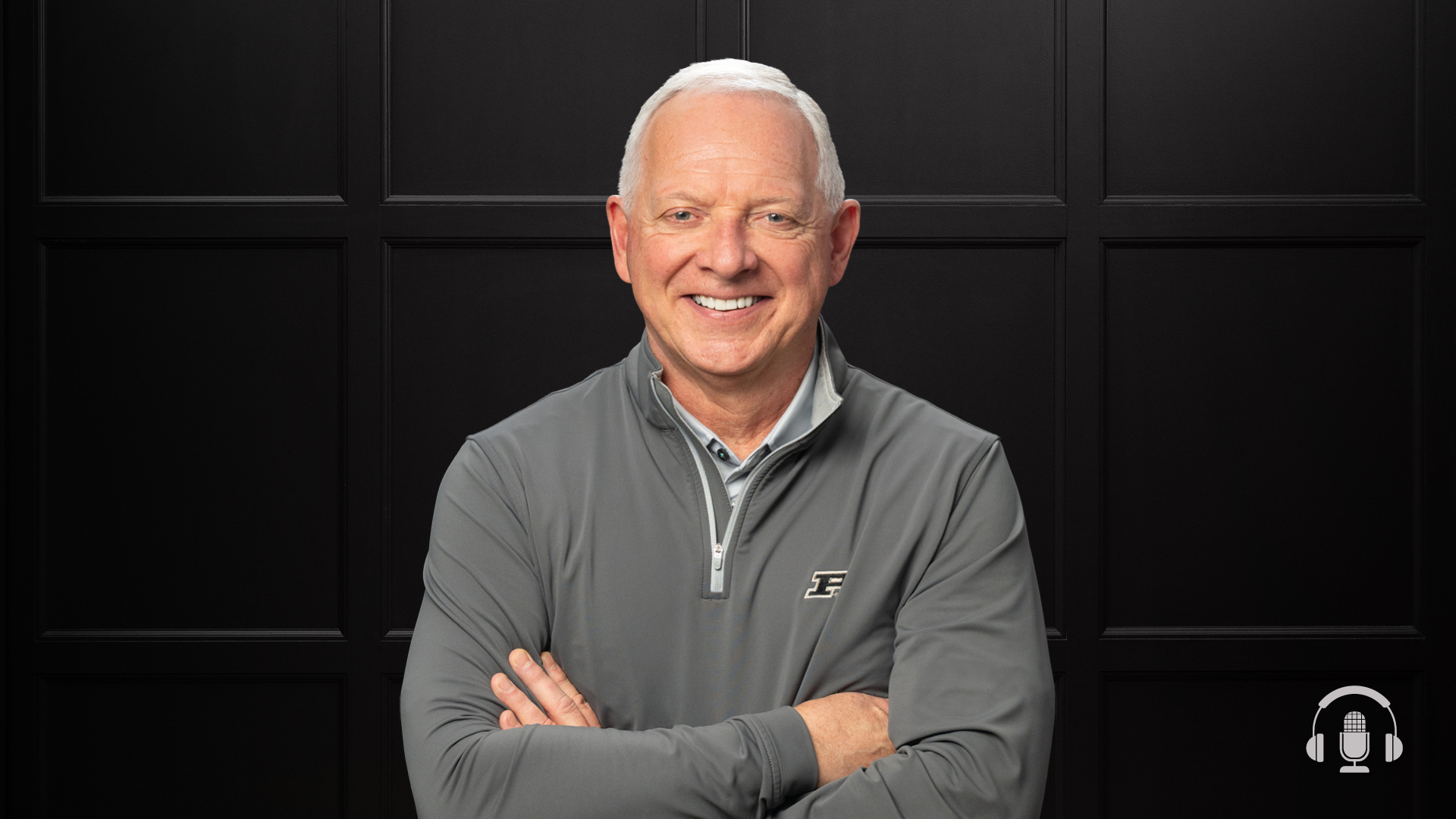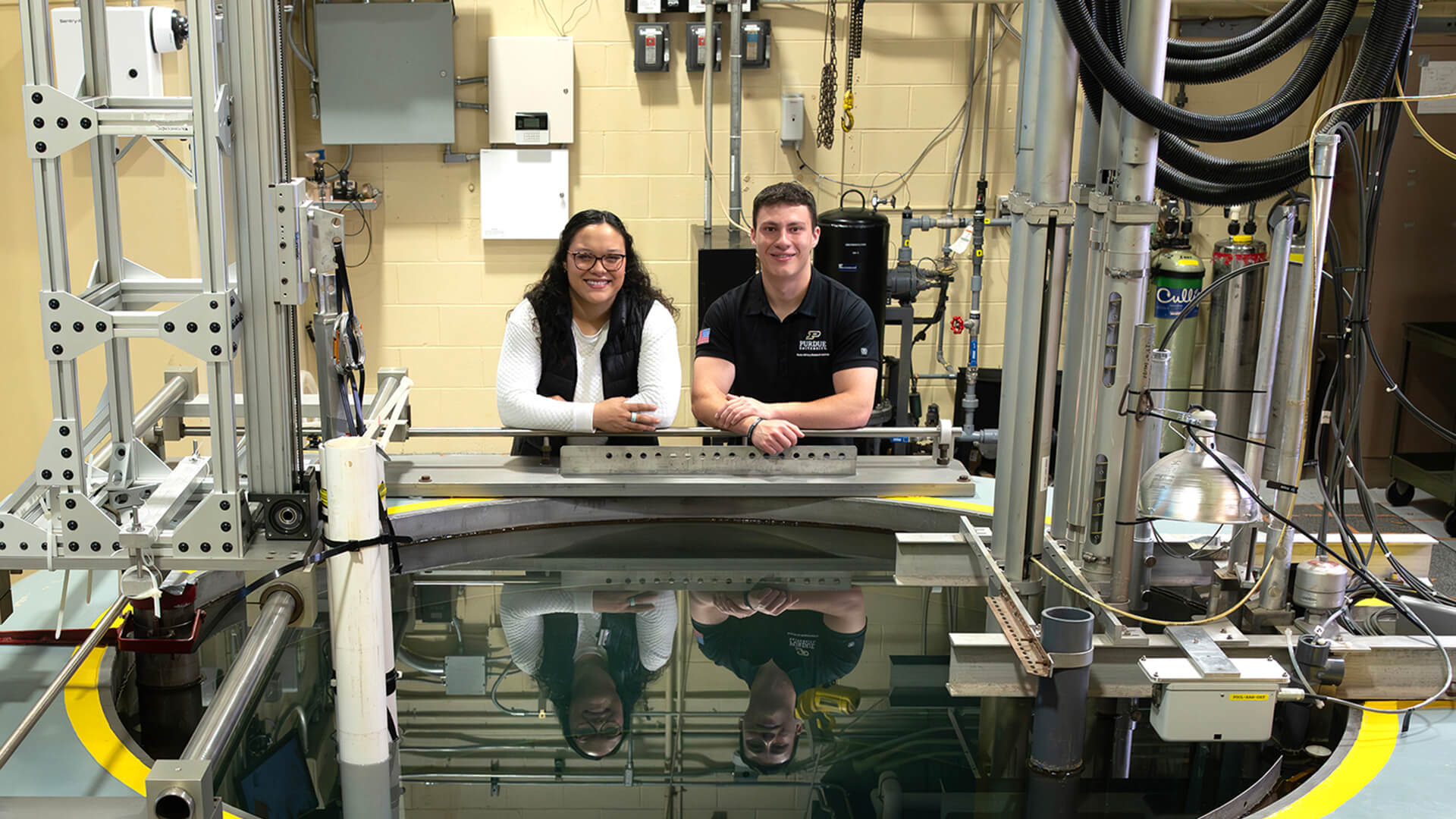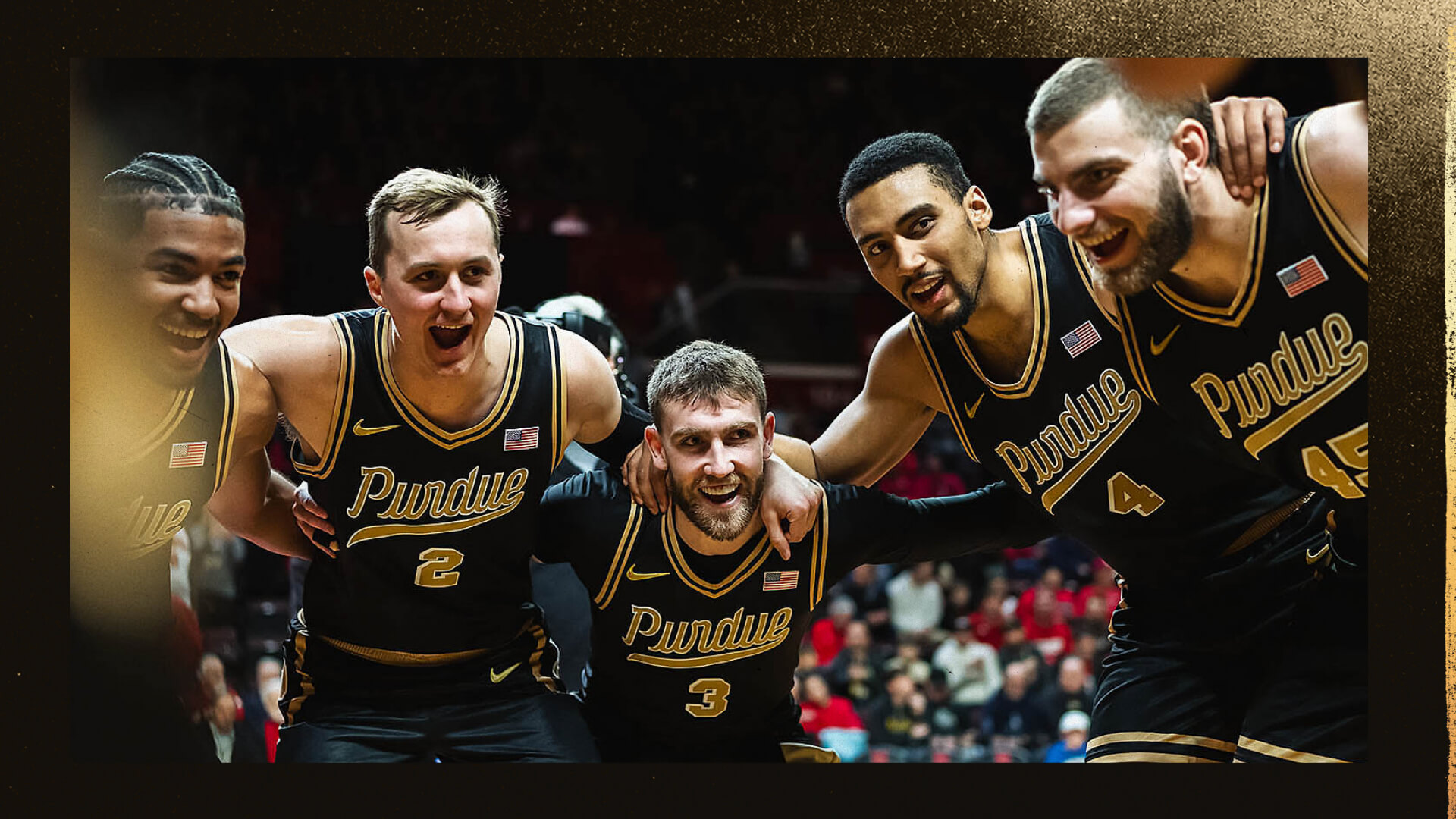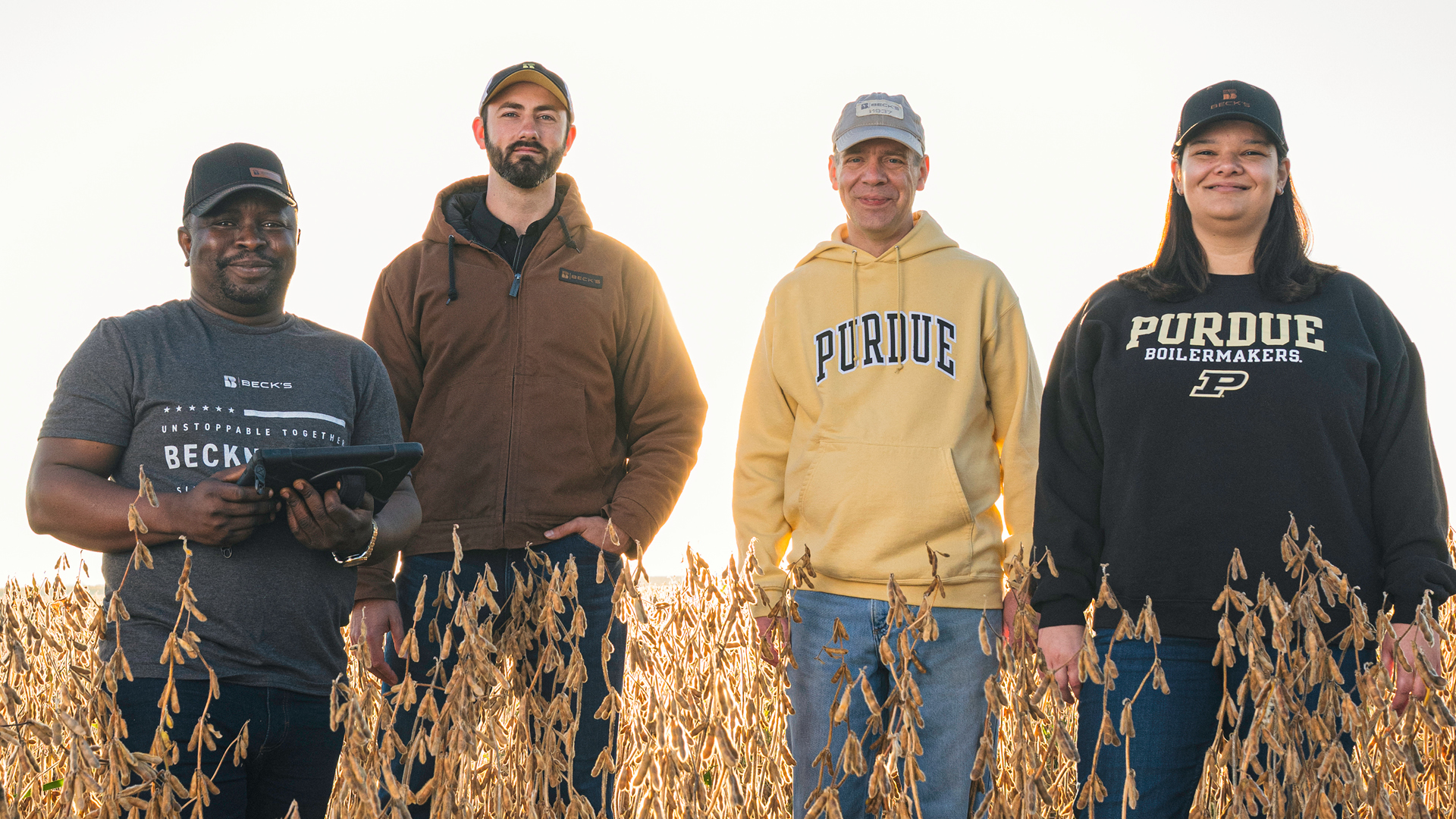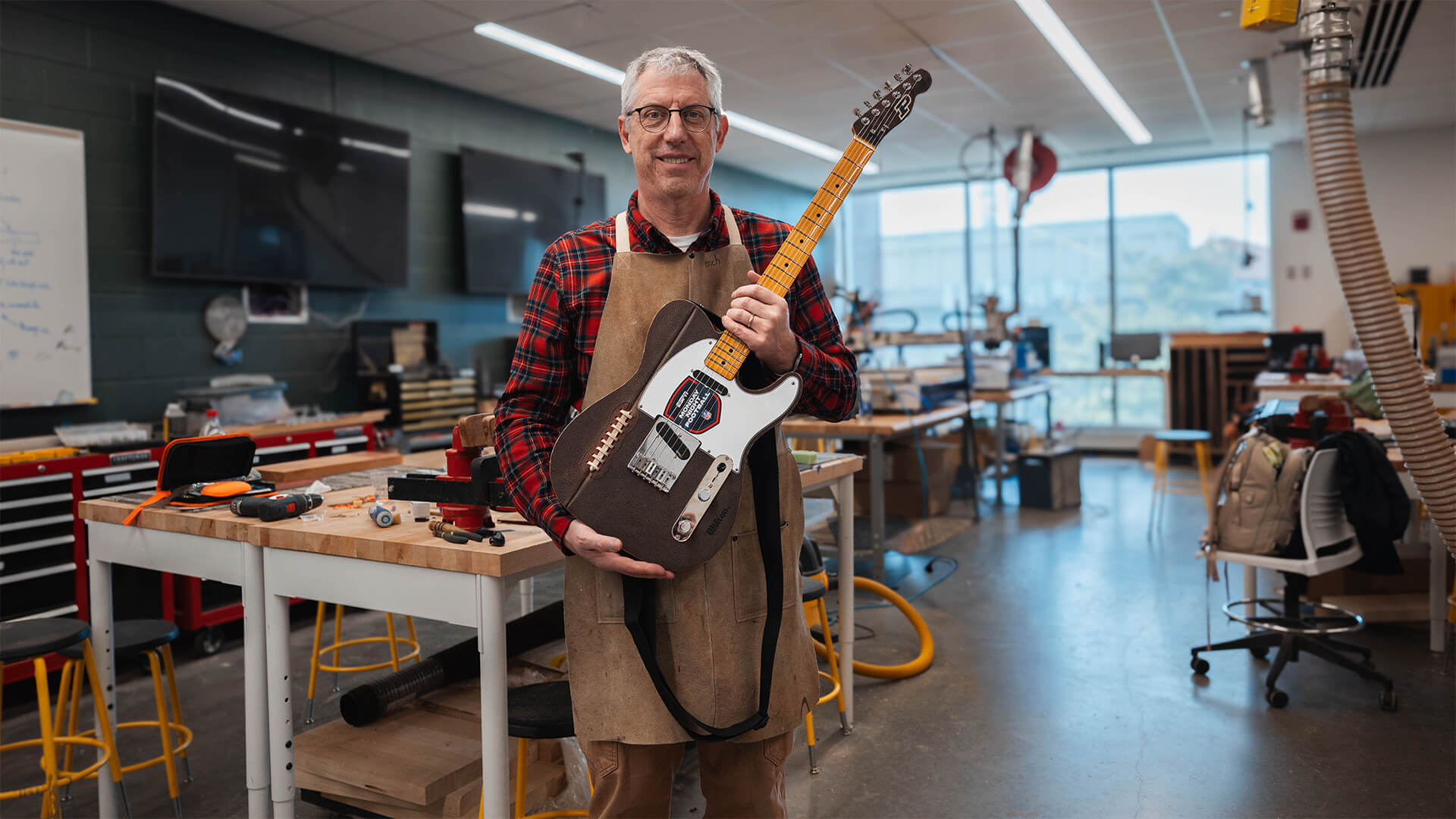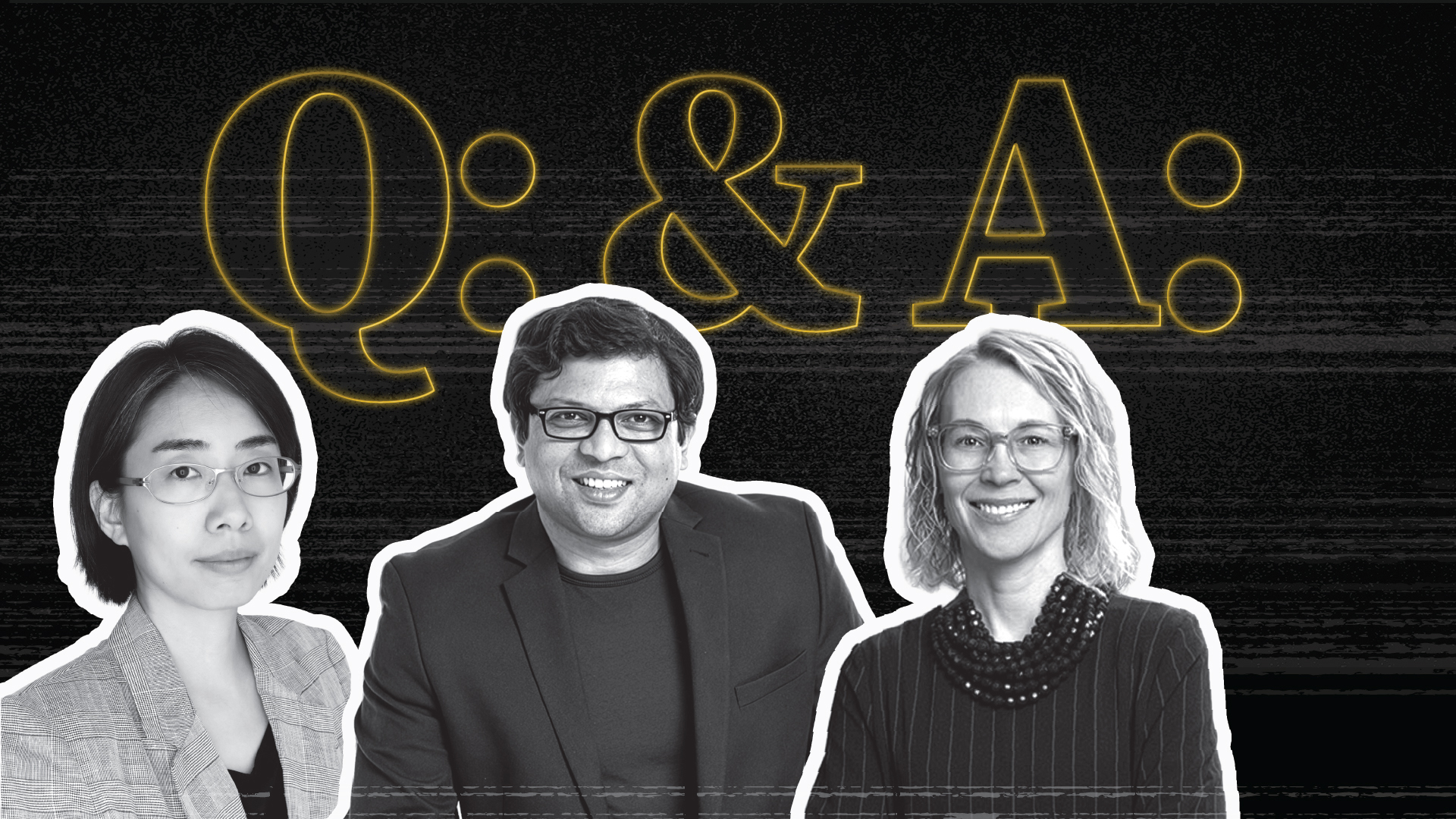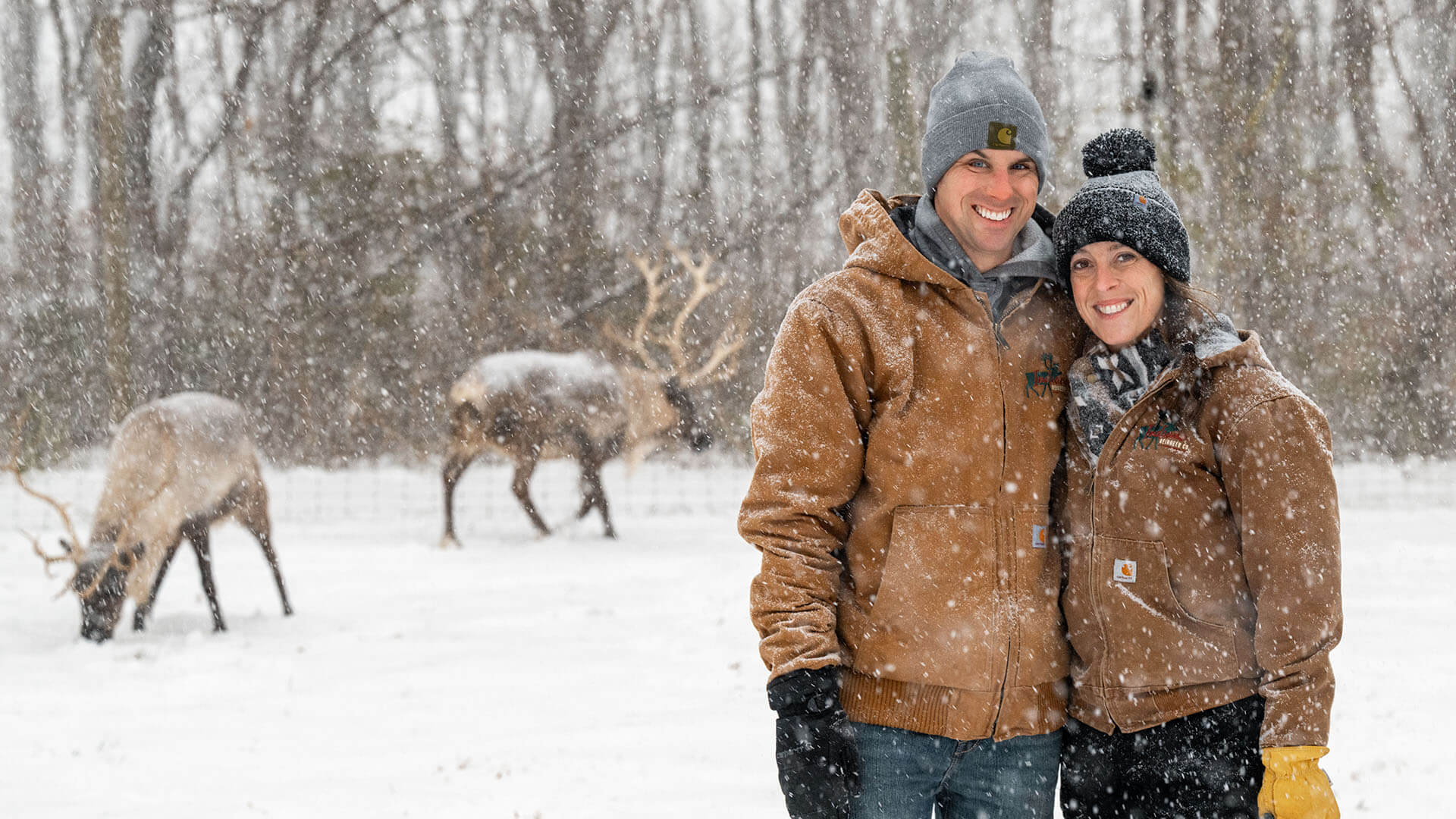Professor credits teaching success to understanding, empathizing with students
2021 Murphy Award: Andrew Freed
On university group chats and on Reddit boards throughout campus, students refer to Andrew Freed, professor of earth and atmospheric sciences, as a GOAT — one of the greatest of all time.
High praise, indeed, which was echoed by his reception of the Murphy Award for Outstanding Undergraduate Teaching in 2021. The Murphy Award is given to five Purdue University professors each year.
“I went through a metamorphosis from my early career where I thought my research was important and the be-all-end-all,” Freed says. “Then I realized that even my high-profile papers are only read by a handful of people, but here I had all these students. Teaching seemed like a much more important and bigger opportunity for me to make an impact. It was a career-evolving process. I still enjoy my research, but I feel my teaching is more important now. I devote more time to it and get more satisfaction out of it.”
Informed by own struggles
Freed stresses that his success in teaching is due to his understanding of and empathy for his students. As an undergraduate student himself in a competitive program, he struggled with his coursework. Those struggles inform what kind of a professor he is, and how he strives to reach and teach his students.
“I want to find the people who are like me, who are struggling like I was, and be the professor that I needed but didn’t have at the right time,” Freed says. “If I can do that for them, and make their college experience a little bit better, that’s amazing. That’s what it’s about.”
During the pandemic, Freed led efforts to adapt the classroom experience to an online environment. He worked with ITaP to outfit Purdue lecture halls with cameras that showed the front of the room and developed methods to encourage and measure student participation in asynchronous lectures.
“Dr. Freed has adapted to the technical challenges posed by the pandemic in the most successful way possible,” says Jeannette Vada Kirsch, one of the students in his earth science lecture. “He conducts his coursework to promote success among his students and encourages interest in the subject. His passion for planetary sciences is palpable and his love for knowledge has a contagious effect on the students of Purdue.”
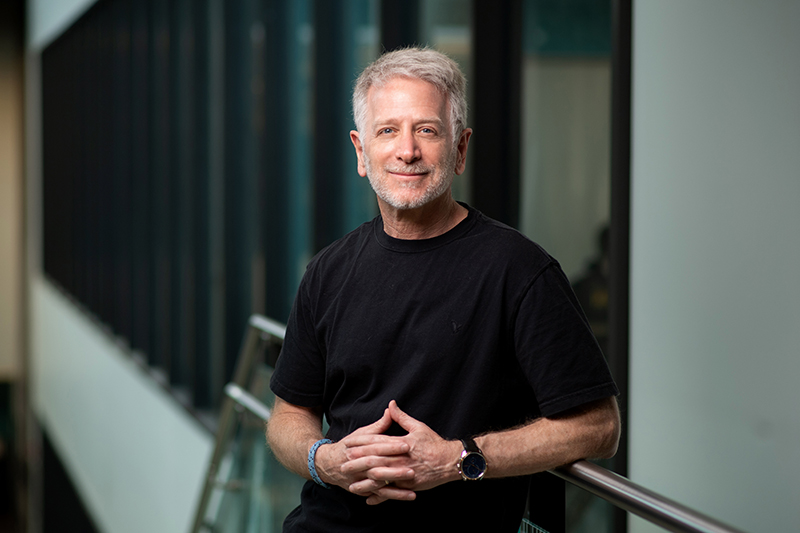
Life Check-In
In addition to his dedication to tailoring his lectures to his students’ needs and interests, he has also prioritized looking after their emotional well-being. His classroom lecture has always had a discussion board where students could ask questions about science or course logistics. With the onset of the pandemic, he added a new discussion board called Life Check-In. It encouraged students to share non-academic issues they might be facing — good news, bad news, pictures of their pets, dinners they had cooked and were happy about, things they missed, or struggles they were having.
Freed responded to every comment, but was overwhelmed by how supportive the students were of each other. During the pandemic, students who were already on the edge, struggling with hunger or homesickness, depression or domestic strife, were even more likely to need help. Purdue is a big place, and people can get lost in it. The discussion board was a way to make a smaller community out of a bigger one, and one that resonated strongly with his students.
“I became aware of the need for something like the Life Check-in during the pandemic,” Freed says. “But it’s something that will continue long after the pandemic is over. There will always be struggling students. It’s an opportunity to give these students the ability to reach a community and find support, confirmation, emotional availability and help.”
Teaching seemed like a much more important and bigger opportunity for me to make an impact. It was a career-evolving process. I still enjoy my research, but I feel my teaching is more important now. I devote more time to it and get more satisfaction out of it.
Andrew freed
professor of earth and atmospheric sciences
With two decades of undergraduate teaching under his belt, Freed is looking forward to many years more of communicating with students and tailoring his methods to fit their needs and current circumstances.
“The Murphy Award is fantastic, but it’s like a once-in-a-lifetime thing,” Freed says. “It’s the day in and day out feedback that I get from my students, from emails to comments on our discussion board, especially in person, that’s my driver. Students are very honest. They’re going to let you know what they think. And they tell me they like the way I teach. They like how much I care.”
